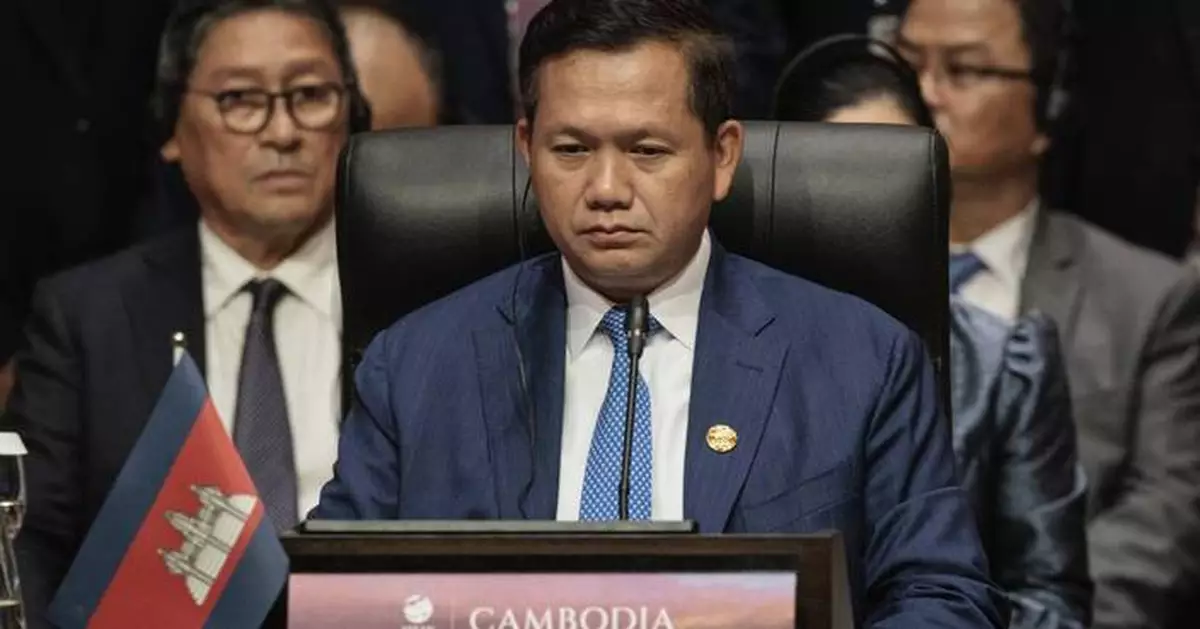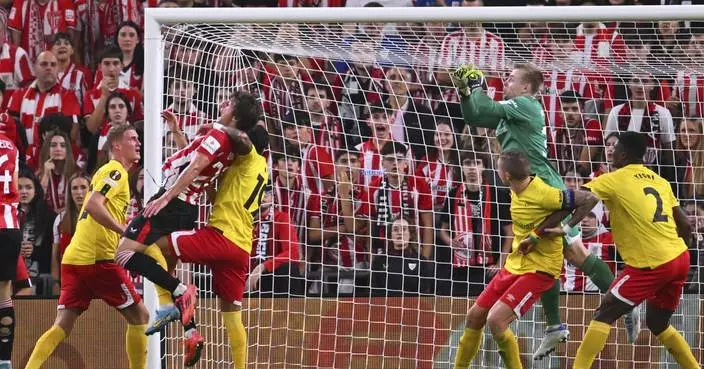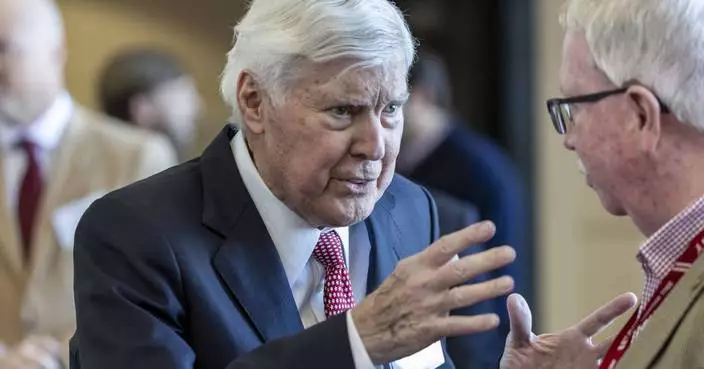PHNOM PENH (AP) — Six Cambodian activists charged with treason over Facebook comments criticizing their government have been deported from Thailand to stand trial, a pro-democracy group said Thursday.
The Khmer Movement for Democracy, a movement formed by opposition leaders in exile, criticized the decision to return the four women and two men Nov. 24, saying they will face “inhuman and degrading treatment” in Cambodia's overcrowded prison system.
Thailand and Cambodia are accused by rights groups of having a de facto agreement to return political dissidents wanted by their home country.
The activists — Pen Chan Sangkream, Hong An, Mean Chanthon, Yin Chanthou, Soeung Khunthea and Vorn Chanratana — are associated with the opposition Cambodian National Rescue Party, which was dissolved ahead of the 2018 general election as part of a crackdown on the opposition.
The Cambodian People’s Party subsequently won every seat in the National Assembly in an election that returned autocratic leader Hun Sen to power.
Hun Sen ruled Cambodia for nearly four decades until 2023, when he stepped aside to make way for his son, Hun Manet, who was elected prime minister later that year in elections that were criticized internationally as neither free nor fair.
The six activists were charged in August by the Phnom Penh Municipal Court with treason after posting statements critical of the Cambodian government's involvement in a decades-old regional development agreement with neighboring countries, said Am Sam Ath Operational Director of local rights group, Licadho. He confirmed the six had been deported by the Thai government.
The Cambodia-Laos-Vietnam Development Triangle Area (CLV-DTA) agreement was a development plan intended to facilitate cooperation on trade and migration in four northeastern provinces of Cambodia and border areas in Laos and Vietnam. It was signed in 1999 and formalized in 2004.
Critics focused on land concessions, charging that the pact privileges foreign interests, and particularly that it would cede land and sovereignty to Vietnam, a highly sensitive issue because of Cambodia’s historical antagonism toward its larger eastern neighbor.
Nearly 100 people were also arrested in August in Cambodia for protesting the agreement.
Hun Manet defended the crackdown, saying the authorities must protect the social order and security for the sake of all Cambodians, and accused the protesters of seeking to overthrow his government.
His government then pulled out of the CLV-DTA in September, but the charges against those who protested remain.
Kheang Sonadin, a spokesperson for Cambodia’s department of prisons, said all six activists had been assigned to various prisons on Nov. 25.
If convicted, they face up to 10 years in prison.
Rising reported from Bangkok
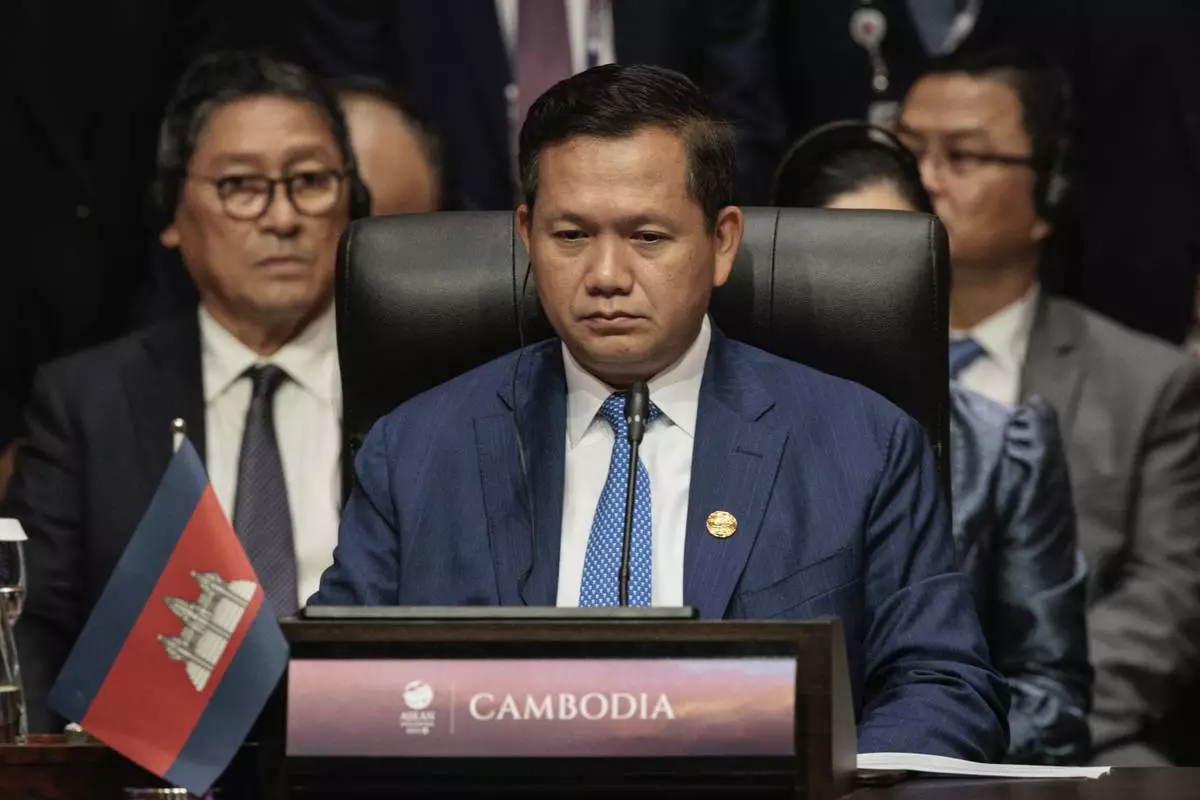
FILE - Cambodia's Prime Minister Hun Manet attends the East Asia Summit at the Association of the Southeast Asian Nations (ASEAN) Summit in Jakarta, Indonesia, Thursday, Sept. 7, 2023. (Yasuyoshi Chiba/Pool Photo via AP, File)
CARACAS, Venezuela (AP) — Venezuelan lawmakers on Thursday approved a bill that codifies economic sanctions, like those imposed by the United States, as crimes against humanity and allows the prosecution of anyone who expresses support for the measures.
The bill, approved by the unicameral National Assembly, implicitly targets leading opposition leaders, many of whom have supported economic sanctions as a means to pressure the government into negotiations. The measure bans supporters of economic sanctions from running for office and allows authorities to prosecute them in absentia and seize their property.
“The unilateral coercive measures and other restrictive or punitive measures adopted against the Bolivarian Republic of Venezuela constitute a crime against humanity, within the framework of a systematic and widespread attack against the civilian population,” the bill, as read during Thursday's session, states.
A conviction under the bill would carry a sentence of at least 25 years in prison.
The approval comes one day after the White House announced it had imposed sanctions on 21 individuals it accused of undermining Venezuela’s July presidential election. It also followed the decision by the U.S. House of Representatives last week to pass a bill that would block the federal government from contracting any company doing business with the government of President Nicolás Maduro.
The measure is the latest effort by Venezuela's ruling party to silence dissent after the July election, which Maduro and former diplomat Edmundo González both claim to have won.
Venezuela’s National Electoral Council, which is stacked with Maduro loyalists, declared Maduro the winner hours after polls closed on July 28. But unlike previous presidential elections, electoral authorities did not provide detailed vote counts.
Meanwhile, the main opposition coalition collected tally sheets from 80% of the nation’s electronic voting machines, posted them online and said the voting records showed González won the election with twice as many votes as Maduro.
Anti-government protests erupted nationwide the day after the election, drawing repression from state security forces, which arrested more than 2,200 people, including political leaders, lawyers, poll workers, election volunteers and protesters, both minors and adults.
González left Venezuela in September for exile in Spain after a warrant was issued for his arrest in connection with an investigation into the publishing of the vote tally sheets, while opposition leader Maria Corina Machado has been hiding for months at an undisclosed location.
Machado last year won the presidential primary organized by the main opposition coalition. But Maduro's government kept her off the July 28 ballot via an administrative decision that concluded she could not run for office because she allegedly sought the broad economic sanctions the U.S. imposed last decade in an effort to topple Maduro. The sanctions crippled Venezuela's crucial oil sector.
Machado’s hand-picked substitute was also barred from representing the Unitary Platform opposition coalition. That prompted the faction’s leadership to choose González as candidate.
Last week, Venezuela’s Attorney General’s Office announced a new investigation against Machado. Her comments in favor of the U.S. House bill, according to a statement from the prosecutor's office, “constitute the commission of crimes of treason against the country,” conspiracy with foreign countries and association.
Machado rejected the accusations in a video she posted Thursday on social media.
“Let them accuse us of treason against the country the day we stand by with our arms crossed, when we believe that there is nothing more to fight for,” she said in a video showing images from this year's presidential campaign. “In that moment, accuse us of betraying the country... resigning ourselves would be a betrayal.”
Garcia Cano reported from Mexico City.
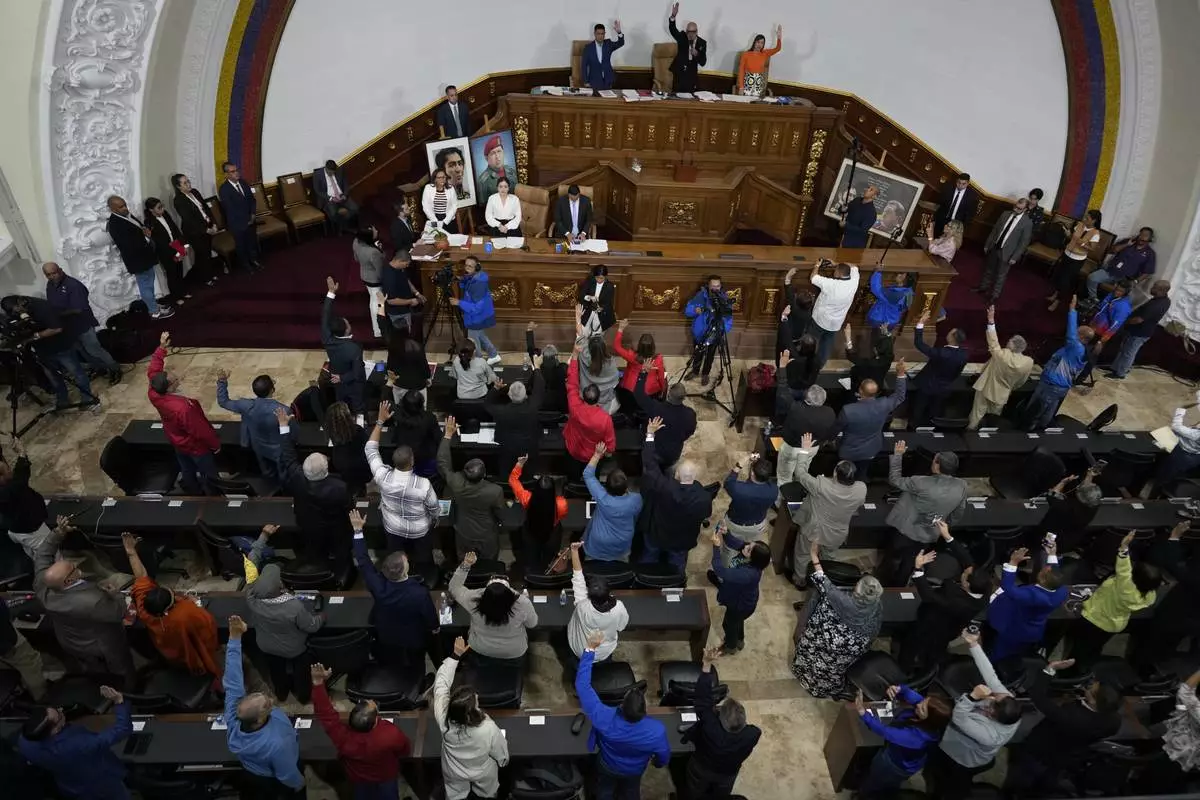
Lawmakers vote for a bill that codifies economic sanctions as a crime against humanity and allows the prosecution of anyone who expresses support for the measures, in Caracas, Venezuela, Thursday, Nov. 28, 2024. (AP Photo/Ariana Cubillos)
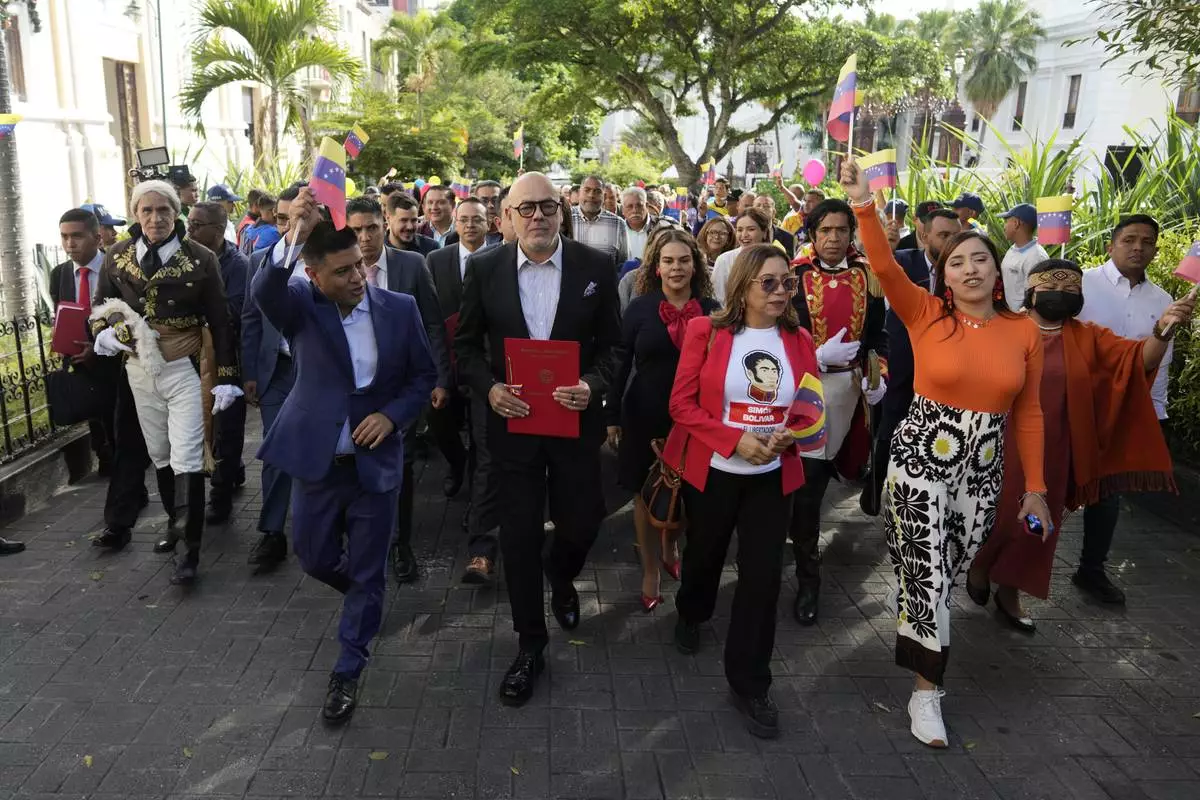
National Assembly President Jorge Rodriguez, center, holds a document of a bill approved by lawmakers that codifies economic sanctions as a crime against humanity and allows the prosecution of anyone who expresses support for the measures, in Caracas, Venezuela, Thursday, Nov. 28, 2024. (AP Photo/Ariana Cubillos)



